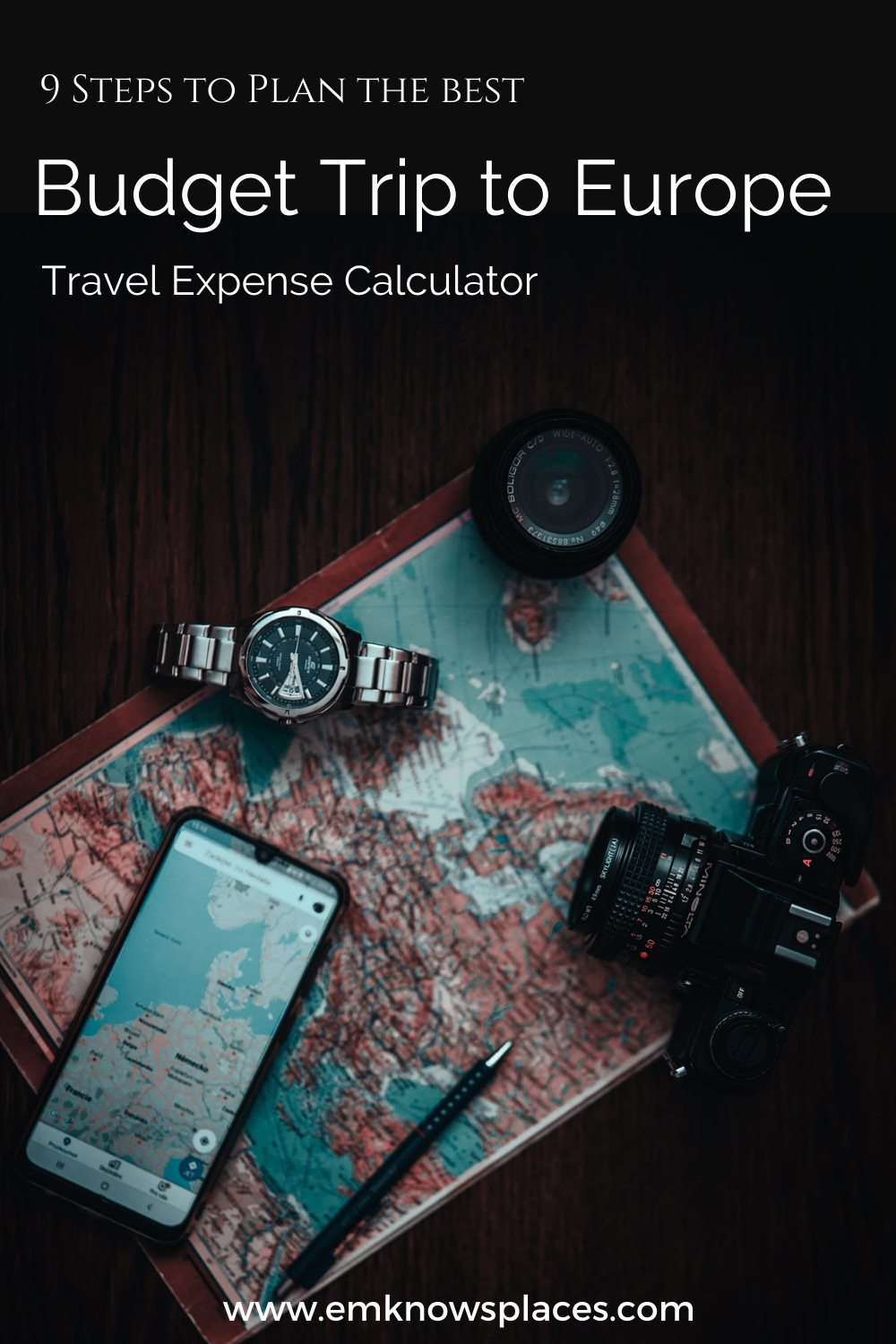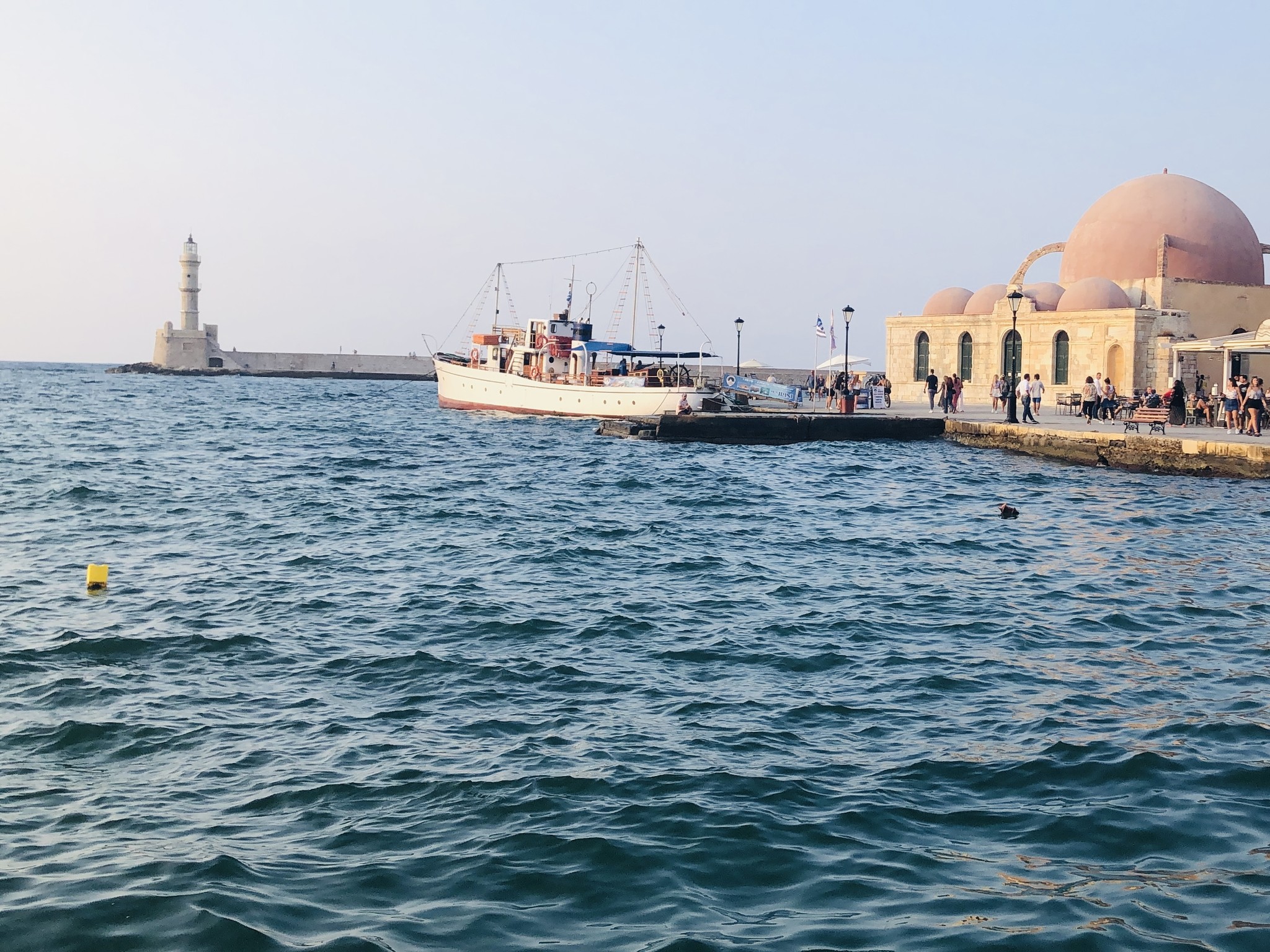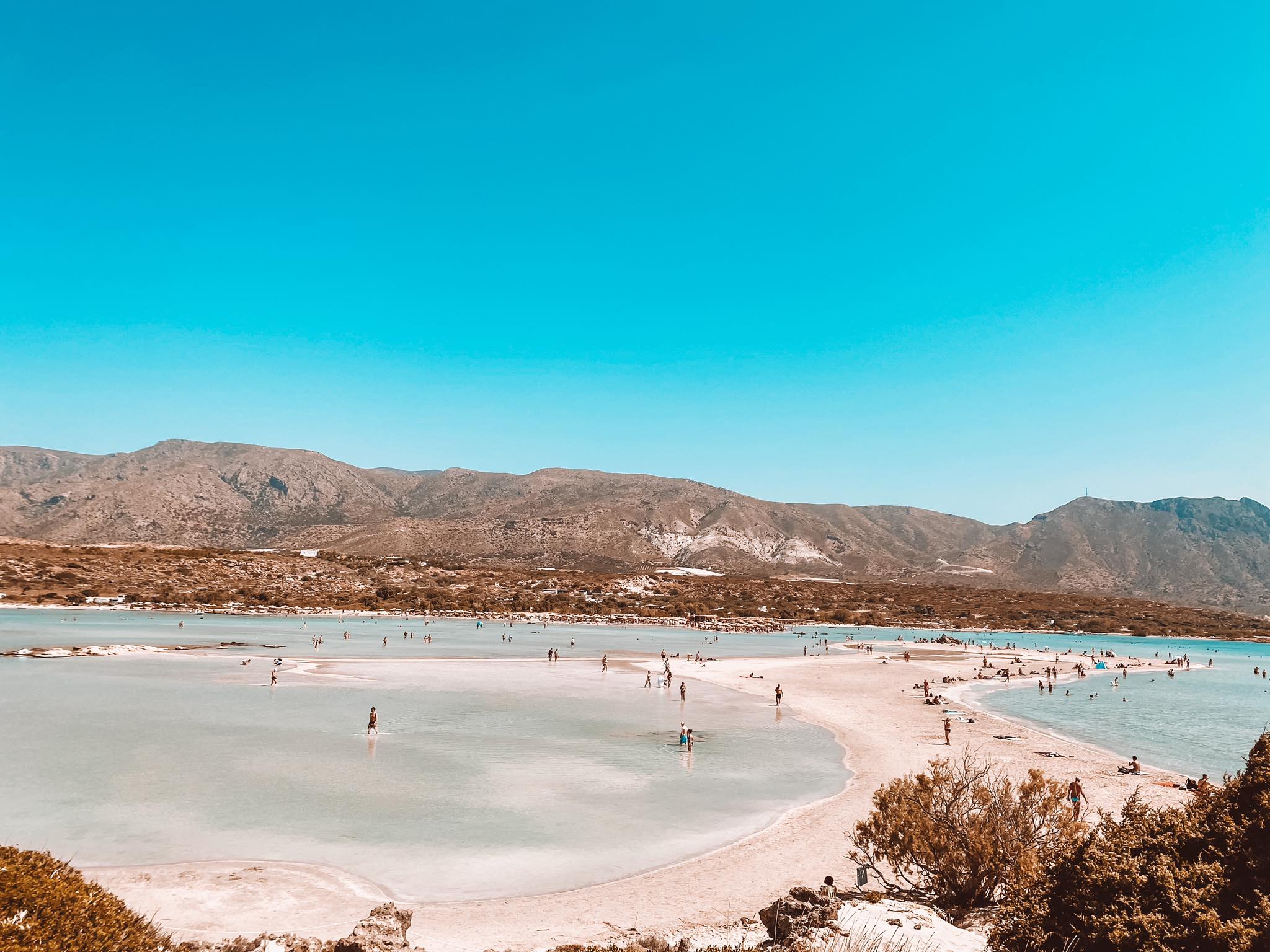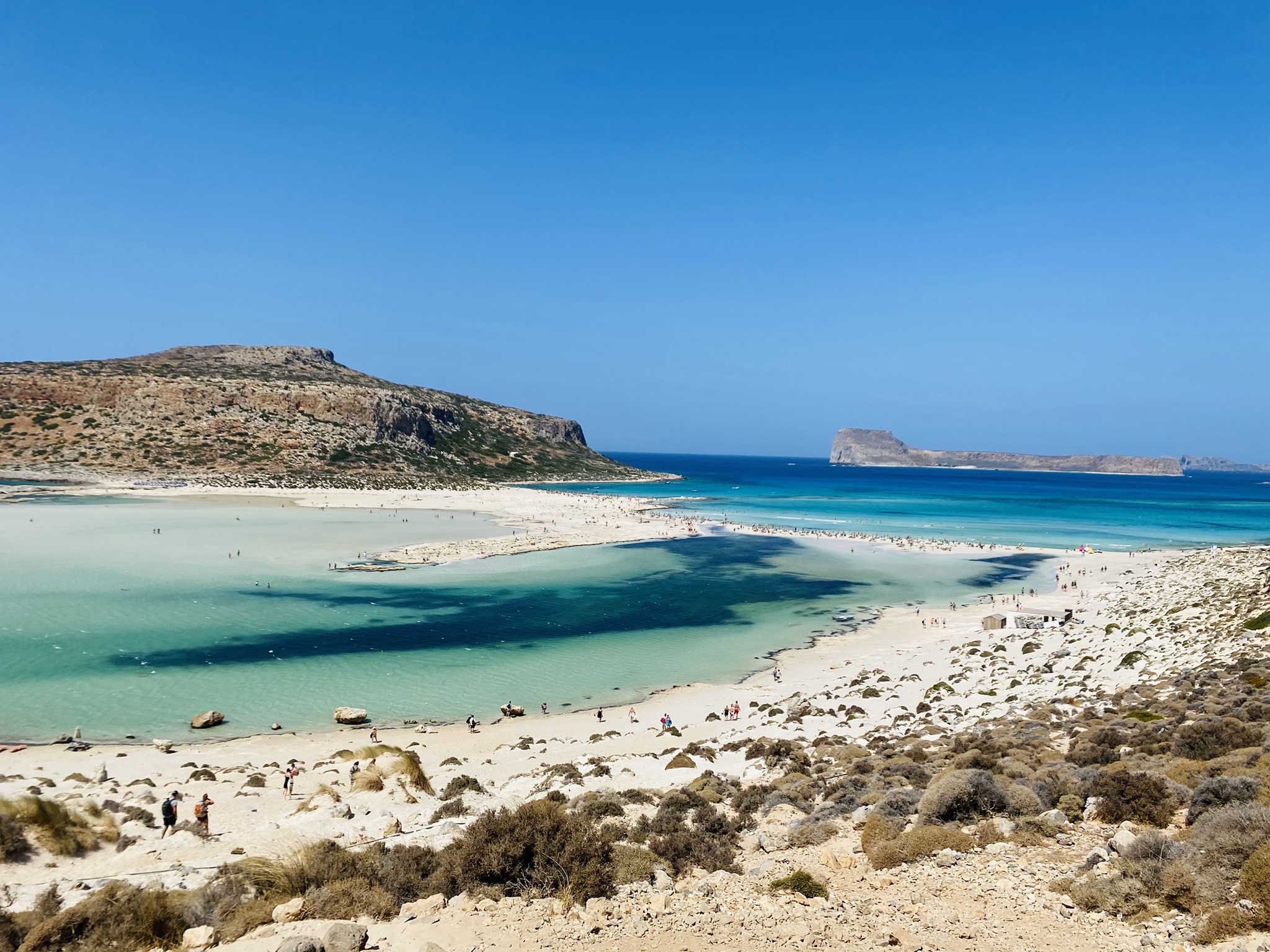If you have read my blogs, you probably know that I always plan my travels on a budget. I always make sure I still follow my principles and comfort while planning these trips. You might have different principles than mine and that may factor in your budget while planning a trip. In this blog, you will find 9 practical steps that will help you plan your next budget trip to Europe.
I am living in Europe for 4 years now. I was a student when I first started traveling. Now I live with my partner and have a full-time job. My goals and intentions evolved during this time along with my priorities. I probably gave more value to experience than comfort during my student days while now, I give value to both experience and comfort. These have factored into the planning of my trips and their budgets.
I had one basic goal. Spend money on worthy objects and experiences even if they seem extravagant. Compromise on something less worthy to make up for it.
Contents
Step 1: Start Planning your Trip
How well in advance should you plan your Europe Trip?
Well, you must plan your Europe Trip at least 3 months in advance. The earlier, the better.
You may also like: Solo Female Travel in Europe – 10 Budget-Friendly Tips with Destinations
Step 2: Determine a Budget

What should be an ideal Budget for your Europe Trip?
This is an important question and is not easy to answer. The economy varies throughout Europe and so do the prices of basic things like accommodation and food.
I always check 3 things before deciding how expensive a destination is – the price of a Coca Cola or coffee, a day pass of the basic public transport, and accommodation for one night at a town or city. I compare these with the destinations I have already explored and make my decision. But this comes with experience.
For example, in Greece, the different islands have different prices of basic things and mostly offer the same kind of experience. A gyro and a litre of wine may cost 25 Euros in Santorini while the same cost 10 Euros in Naxos. It depends on your intention. Do you want to go to a popular place and share pictures on social media or do you want to visit a lesser-known place with the same experience but more for yourself?
50 Euros per day is a good budget to travel in most of the countries in Europe if you eat from Supermarket supplies one time a day and take public transport. It could go up to 100 Euros if you count on Museum visits.
How to determine the budget for my trip?
Determine a practical and realistic budget for your trip. Break it down into per person. Add at least 200 Euros per person as a buffer.
What is a realistic budget for my trip?
Anything above 50 Euros expense per day is realistic for a typical budget trip to Europe.
How should I calculate my expense per day?
This is what an ideal budget should look like.
[(Total Budget) – (Flight Price + Visa + Accommodation)] / Number of days
= Expense per day per person Expense per day per person
= Food + Transport or Car Rental + Museum Visits (or other activities) + Gifts + Mobile Plan
Use this calculator to get a better idea of your daily expenses on your Budget Trip to Europe
Step 3: Setting a time frame

When should I visit Europe?
This is another very important factor in deciding your budget trip to Europe. Generally, July and August are the most popular months to visit Europe but it totally depends on the location you are going to visit.
East European locations like Prague in Czechia, Budapest in Hungary, and Vienna in Austria are charming all year round. It is best to avoid them during high season to get affordable accommodation. May, June, or November are perfect times to visit them on a budget.
Beach destinations like Greece, Portugal, and Spain are too crowded during July and August. It is best to visit them in the months of May, June, and September to avoid paying a fortune on accommodation, enjoy pleasant weather, and also avoid the crowded beaches.
If you want to visit cities like Milan, Italy or Berlin, Germany or Krakow, Poland you can easily visit them during the months of July and August. The locals and tourists are both off to the beaches so you can enjoy a peaceful stay in the cities in your budget.
For more information, visit my Blog on individual destinations.
Step 4: Decide where to eat and stay

Where should I eat during my Europe Trip?
Food could be a deciding factor on how much you will end up spending on your trip. Eating 2-3 times at a restaurant could hugely impact your budget. Every destination in Europe has world-class supermarkets. You can find anything from Salads, Sandwiches to Pizzas and fresh fruits.
As a rule, I always eat my breakfast (if it is not provided by the accommodation) and one other meal from the Supermarket. I always enjoy the third meal at a restaurant of my choice.
Avoid having alcohol in restaurants to save a huge amount of money. Instead, buy a bottle of wine from the Supermarket and enjoy it at a location of your choice.
For cheaper food options visit one of the Supermarket chains like Aldi, Lidl, Rewe, Penny, etc. instead of the local markets or kiosks.
Always keep some snacks like biscuits and bread with yourself. Do not starve.
Where should I stay during my Europe Travel?

There are 3 best options to stay for your budget trip to Europe from cheapest to most expensive (this excludes camping and couch surfing).
Hostels: Hostels in Europe are very well organized and a great place to make new friends. They are very clean and budget-friendly. They are great for students or solo travellers.
Find the best hostels here.
Airbnbs: For me, the best experiences I have had while travelling in Europe are with Airbnbs. They are available in all kinds of budgets. You could choose an entire apartment, a shared room, or a private room in an apartment. An added benefit is that you get to experience staying like a local in any area. Airbnbs are fit for solo travellers, travelling with family or in a group.
Tip: Do check the reviews of a place before booking it. You usually find out if an Airbnb will be suitable for you from the pictures and the reviews by the former guests.
Hotels: Hotels are the most expensive option and are often priced much higher than Hostels or Airbnbs. If it fits your budget, you can go ahead and book them. They are fit for any kind of traveller.
Find the best hotels here.
How should I choose the location of my accommodation?
The added advantage of staying in a hostel is that they are almost always located at the centre of the city or town.
Price of Hotels and Airbnbs keeps decreasing as you move further away from the centre. Would you book your accommodation on the outskirt and spend time and money on public transport every time you come to the centre or would you spend a few extra bucks to stay in the centre?
I would recommend you settle on a middle ground here. Check the prices and frequency of public transport before visiting any place. In cities like Rome and Paris, you could save half of your accommodation money by staying 20-30 minutes away from the centre. The public transports are so efficient and cheap, you won’t mind doing it. Whereas, in a city like Porto or Mallorca, it is vital to spend a few extra bucks to find accommodation in the centre because the connectivity with public transports is not that efficient.
If you are renting a car, you could live up to 40 mins away from the centre to get amazing prices on accommodation but I would still recommend you to visit the popular destinations in public transport or walking because of the unavailability of parking spaces and the high cost associated with it.
Find out more about choosing your accommodation in my individual blog posts.
Step 5: Booking your tickets

When and where should I book my flight tickets to Europe?
Many people make the mistake of booking their flight tickets first and then planning their trips around it. I do not blame them because the flight tickets have offers only for a short time before disappearing.
This is a major blunder if you are making a budget trip to Europe. The flight tickets should be the last thing you book during your plan.
I swear by Skyscanner and have always found the best deals here. They have a monthly calendar that helps you determine your best possibilities.
Step 6: Know how to get around inside Europe

There are many ways to get from one city to the other. The best and most convenient way is the train. It could also be the most expensive so book your tickets in advance from here.
The next option is the bus. Flixbus travels almost to all the popular destinations in Europe. They are usually reliable and cheap.
For traveling longer distances, there are low-cost flights like Ryanair and Easyjet, but they have a lot of restrictions including luggage and seat reservations. Do check everything in detail before booking them as they are not refundable.
For detailed information on local flights of specific countries, visit my blogs.
You may also like: Flixbus Experience – Europe: An Honest Review with Pros and Cons
Step 7: Important things you need
Get a local sim
Get a sim loaded with data to help you throughout your budget trip to Europe. Google Maps is gold in any city or town in Europe.
Get it from a local shop near your accommodation rather than buying it from the Airport.
Carry some cash and an International Debit or Credit Card
Avoid getting your currency converted at the airport. Rather just use your International Credit/ Debit Card to withdraw cash from an ATM.
You can use this card to load any currency to your account at the best rates.
Most places accept cards but always keep at least 50 Euros cash with yourself.
What are the things I must always carry during my budget trip to Europe?
Keep your Passport, cash, and mobile with you at all times along with some snacks and water.
Step 8: Distributing your budget
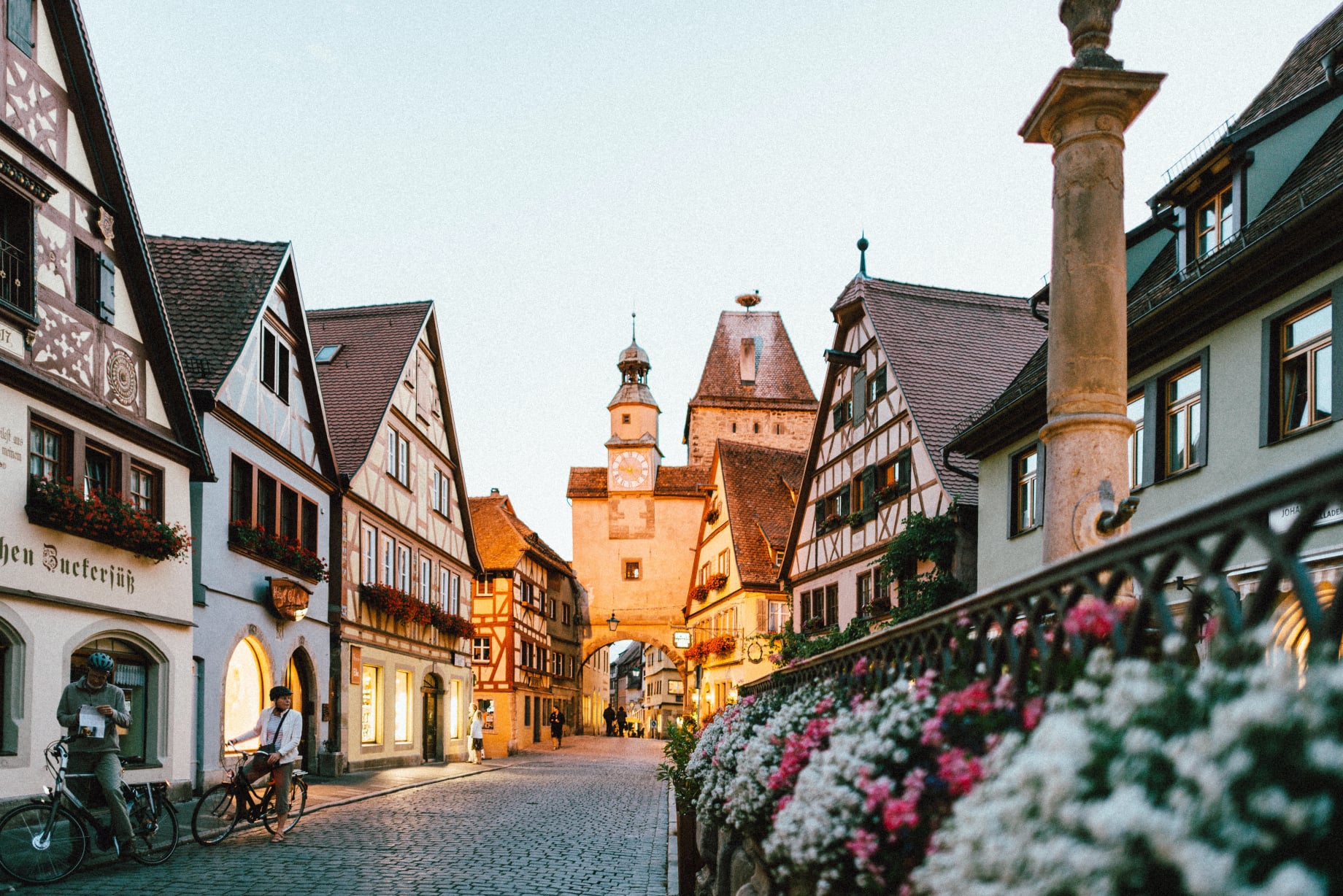
Where should I spend more and where should I save?
Different people expect different outcomes from their travels. Some like to relax and enjoy the nature, others like going to museums, some like to try the local cuisines and enjoy the nightlife, whereas others want to get to know the people and local culture.
You can make an outline of the things you would enjoy the most. It does not have to mean you have to skip one to enjoy the other.
Getting a SIM card:
Do not skip this step. You need the internet for connecting with people, uploading that Instagram story and most importantly, for using Google Maps. You could get a Prepaid Sim Card at a local store for as little as 15 Euros.
Public Transport:
Getting a daily or weekly transport pass is a good idea but not mandatory. In most of the popular cities of Europe, the sights of interest are closely located. So, you would probably just need to buy 2 tickets for going to and fro your accommodation. You could do the rest by walking. However, this is not the case for all cities. Always, research in advance for this or look at my individual blogs for information on public transport for each location.
Enjoying Nature, Architecture, and Local Culture:
This does not cost a thing. In fact, the best way to enjoy most cities in Europe is by walking. Make a route on Google Maps and follow it for memories you will cherish forever.
Food:
Eating could burn a huge hole in your pocket while travelling in Europe. I already suggested picking up your meals from a Supermarket. But this does not mean you do not get to enjoy the local cuisine. Eat outside at least one meal a day. Try the local dish and liquor. Just make sure you do not get carried away.
Visiting Museums and other Local Attractions:
If you are a museum buff like me, you should never compromise on Museum Visits. Europe has the coolest and richest museums and sights in the world. Save on that bottle of wine that you wanted for a Museum ticket.
Things to consider:
· Almost all museums and sights have special discounts. Check out their sites to avail them.
· Buying a Museum Pass: In cities like Paris and Amsterdam, there are so many wonderful museums that it would save you time and money to buy a Museum Pass. But if you have a sight in mind, e.g., you only want to visit the Louvre Museum and the Rodin Museum in Paris, then it saves you money to buy the individual tickets rather than the Museum Pass.
· Please note, sometimes the Passes give you access to Public Transport also. That could be a deciding factor for considering a pass.
· If you want to take a scuba diving lesson in Spain or a boat ride across the Atlantic in Portugal, research all your options in advance instead of booking them on spot. Compare the Google Reviews before settling on a choice. Choose the best instead of the cheapest.
For unique experiences everywhere you can check out Airbnb Experiences, Viator, or Get Your Guide.
Tip: Always buy your tickets and experiences from the official sites instead of going through a bridge company to save money.
Visiting Museums and other Local Attractions:
Keep a chunk of money aside to buy a little bit of the place you are visiting to preserve it in your memories. Spend 10-50 Euros on a souvenir that would help a local artist and bring a smile to your face years later. Of course, it is completely up to you.
Step 9: Do as the Locals do

Now that you have the basics noted, this step will help you have a more relaxed and individual experience in Europe. Learn more about the people in a place. Find out where they hang out, which restaurants they eat in, what are their favourite spots in the city. If you try to blend in with the people and culture of a place, you discover the best-kept secrets and have the most genuine experience of the place.
You may also like: 8 Ultimate Steps you need to Choose the Perfect Airbnb
